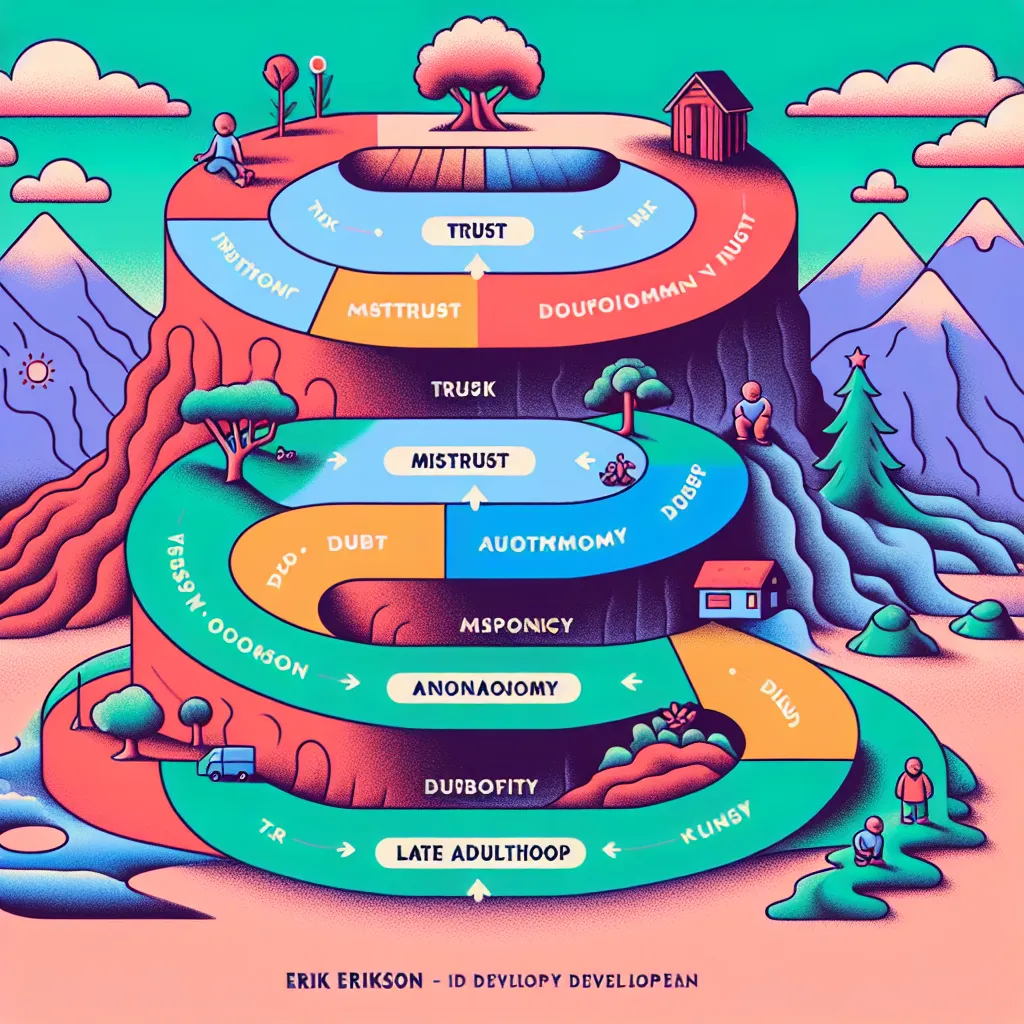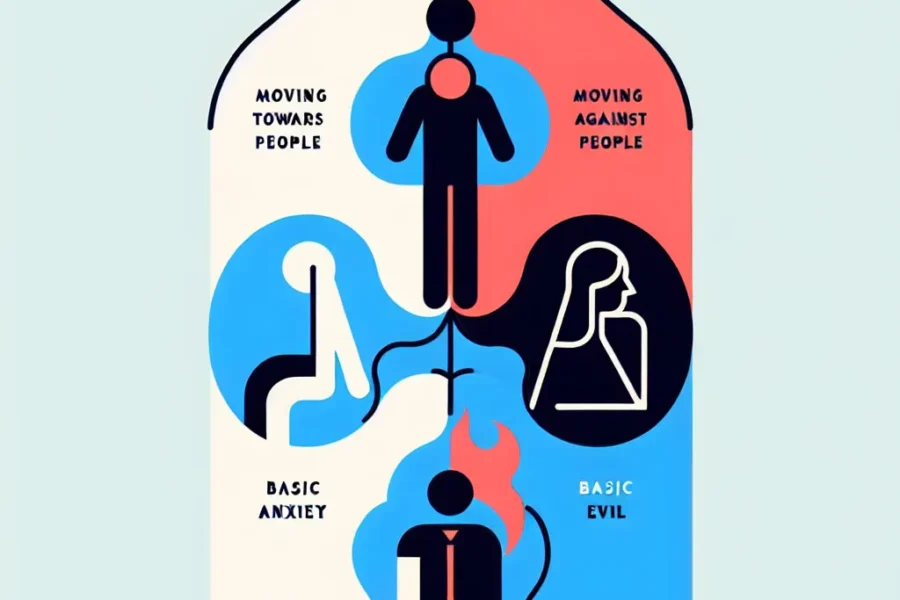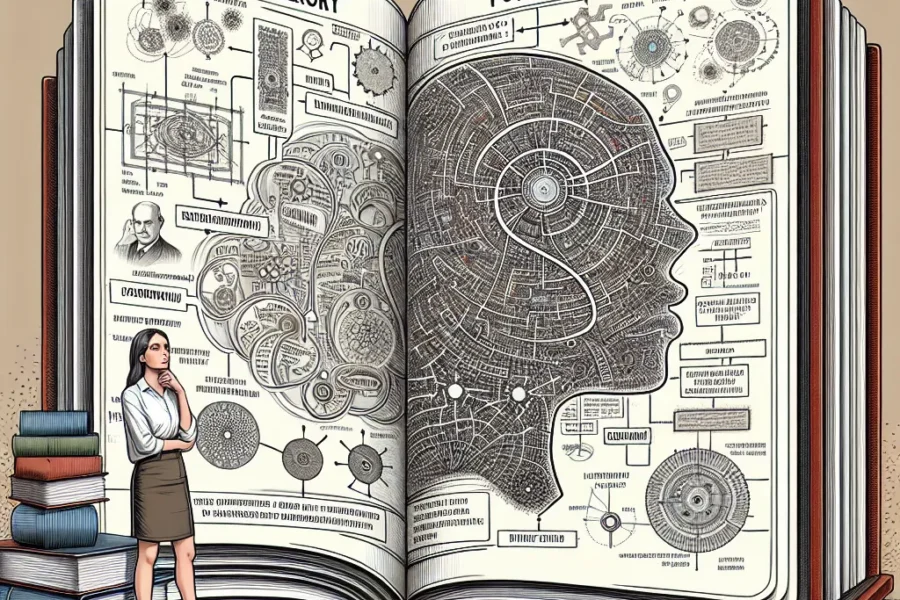Erik Erikson, a prominent psychologist, is best known for his influential theories on development and identity, which have made significant contributions to our understanding of human growth. His work emphasizes the importance of psychosocial development across the entire lifespan, detailing eight distinct stages that a person goes through from infancy to late adulthood. In this comprehensive examination of Erikson’s theories, we will delve into the essence of his groundbreaking ideas and explore how they continue to resonate within the fields of psychology and human development.
Erikson’s psychosocial development theory is anchored in the interplay between the individual and their social environment. He believed that each stage in his model centered around a core conflict or crisis that must be resolved for healthy psychological development to occur. As individuals navigate these challenges, they develop virtues or psychological strengths that contribute to their overall identity and role in society.
The first stage, titled Trust vs. Mistrust, occurs from birth to approximately age one. During this foundational period, infants depend on the care and reliability of their caregivers. A stable environment and consistent nurturing foster a sense of trust. Conversely, unpredictable care can lead to mistrust. Successfully navigating this stage results in the virtue of hope, while failure leads to heightened suspicion and fear.
Moving into early childhood, the Autonomy vs. Shame and Doubt stage, between ages one and three, centers around the child’s ability to assert independence. As toddlers explore and exert control over their world, they can either develop a sense of autonomy or experience shame and doubt about their capabilities. Completing this stage successfully cultivates the virtue of will.
Between ages three and five, children enter the Initiative vs. Guilt stage. At this time, they begin to take initiative and engage in purposeful activities. Positive reinforcement of this assertiveness can result in a healthy sense of direction or initiative. Negative responses, however, may instill feelings of guilt and inhibit their ability to take the lead and act purposefully, potentially affecting their confidence and future social interactions.
The Industry vs. Inferiority stage spans from age five to approximately age twelve. Here, children are immersed in the world of learning and productivity. Success in school and social situations fosters a sense of industry and competence. Failure, however, can contribute to feelings of inferiority and diminished self-esteem. Through successful navigation, the virtue of competency is developed, which is crucial for children as they prepare for the complexities of adolescence.
Adolescence marks the onset of the Identity vs. Role Confusion stage, as teenagers wrestle with questions of identity and their future role in society. Erikson viewed this juncture as pivotal, where the teenager must integrate the various dimensions of their life into a coherent sense of self. Successfully achieving this results in fidelity, a virtue representing loyalty to one’s defined identity. Unsuccessful resolution can cause role confusion and instability.
Young adulthood brings the Intimacy vs. Isolation conflict. Individuals must find balance between forging deep relationships and maintaining a sense of individuality. Mastery of this stage results in love, the developed capacity for intimate and committed relationships. A failure leads to isolation and difficulties in forming meaningful bonds.
The Generativity vs. Stagnation stage is characteristic of middle adulthood, wherein the focus shifts to nurturing the next generation and contributing to society. Productive engagement yields a sense of purpose and the virtue of care. In contrast, those who struggle during this time may experience stagnation and a sense of unfulfillment.
Finally, late adulthood is characterized by the Ego Integrity vs. Despair stage. Here, individuals reflect on their lives, grappling with their accomplishments and failures. A sense of ego integrity emerges from a well-lived life, along with the virtue of wisdom. Conversely, feelings of despair may arise from a life full of regrets, leading to bitterness and hopelessness.
Erikson did not believe that the outcomes of these stages were absolute or final. He asserted that setbacks could be revisited and resolved, and strengths further developed at any point in life. Through these stages, Erikson outlined a comprehensive framework for understanding the formation of identity and the evolution of personality across the lifespan.
Moreover, Erikson’s work on identity crisis, a term he coined, highlights the struggle often faced when one’s sense of identity is in flux. He believed that a crisis is not inherently negative but rather a crucial turning point—a fundamental process in the ongoing development of identity.
Erikson’s theories have had profound implications for various disciplines, ranging from education and counseling to leadership and human resources. Educators utilize this framework to tailor learning environments that foster development at the right stage. Counselors and therapists draw upon Erikson’s stages to understand an individual’s history and trajectory, enriching the therapeutic process. In the corporate world, these insights assist in leadership development programs, helping individuals to achieve generativity through mentorship and succession planning.
Identity formation, a central theme of Erikson’s work, continues to be a subject of interest in contemporary research, particularly in relation to today’s multicultural and technologically advanced societies. With the rise of social media and the digital age, individuals face new challenges and opportunities for shaping their identities.
Despite the passage of time, Erikson’s theories endure as foundational principles within the psychological community. His stages of development remain an essential tool for anyone seeking a deeper comprehension of their history and the evolution of their personal and social identity. The relevance of Erikson’s framework in the current era, with its rapid social and technological changes, further attests to the adaptability and significance of his work in understanding the ongoing process of human development.



Leave a Comment